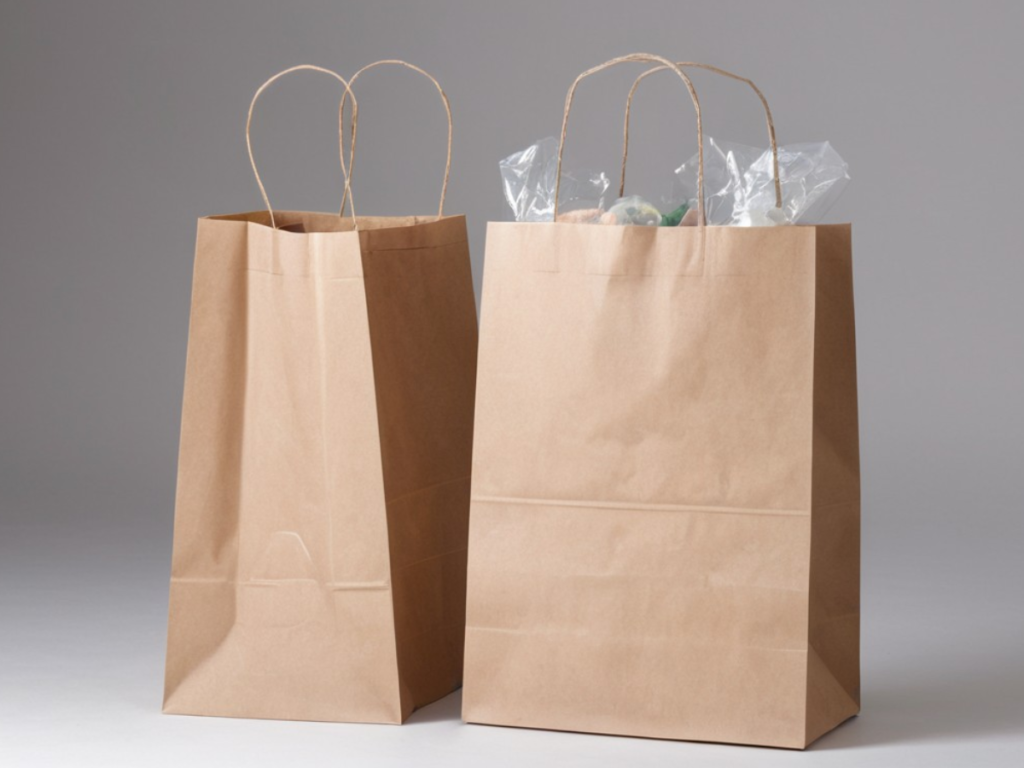The recent years have witnessed the term sustainability going mainstream. It is no longer a buzzword. One of the key reasons is the ever-increasing concerns associated with single-use plastic packaging waste. This has led to the adoption of biodegradable packaging. It is one of the revolutionary step to reduce the ecological footprint.
Biodegradable packaging is made from organic materials that are likely to decompose over time. Some of the organic materials for packaging are plant-based polymers and cornstarch. Unlike synthetic materials, these materials break down easily without leaving any harmful residue.
Understanding the Benefits of Biodegradable Bags
Environmental Impact:
The key benefit of biodegradable retail bags lies in their minimized environmental impact. A traditional plastic bag can take hundreds of years to decompose. As a result, it leads to pollution and harms the ecosystems as well. A biodegradable bag, on the other hand, is made from materials like plant-based polymers or compostable plastics.
These materials break down more rapidly under natural conditions. This not only helps in reducing the burden on landfills but also minimizes the risk of marine pollution, as these bags are less likely to end up in oceans and water bodies.
Sustainability and Brand Image:
Embracing biodegradable bags aligns your business with sustainable practices, which can significantly enhance your brand image. Today’s customers are more environmentally conscious. They prefer buying from the companies involved in sustainable practices.
By using biodegradable bags, you demonstrate your dedication to reducing environmental impact and fostering a green ethos. This positive association can attract environmentally aware consumers, helping to build a loyal customer base and setting your business apart from competitors.
Regulatory Compliance:
Many regions are introducing bans or levying taxes on non-biodegradable materials to encourage businesses to adopt eco-friendly alternatives. By proactively incorporating biodegradable bags into your operations, your business stays ahead of regulatory requirements, avoiding potential penalties and showcasing a commitment to compliance and responsible business practices.
Cost-Effectiveness:
Contrary to the misconception that eco-friendly alternatives are more expensive, biodegradable bags can prove to be cost-effective in the long run.
Due to technological advancements and increased demand, the production costs of biodegradable materials have become more competitive. Moreover, as businesses increasingly adopt these alternatives, economies of scale are achieved, leading to further cost reductions.
While the initial investment might be slightly higher than traditional plastic bags, the potential savings on disposal fees and the positive impact on your brand can outweigh these costs over time.
Reduced Carbon Footprint:
The production of traditional plastic bags is energy-intensive and relies heavily on non-renewable resources like fossil fuels. Biodegradable bags, on the other hand, often utilize renewable resources, such as plant-based materials. This results in a significantly lower carbon footprint during the manufacturing process.
Improved Customer Perception:
Providing biodegradable bags to your customers demonstrates a commitment to environmental responsibility.
This positive gesture has the potential to strengthen your bond with existing customers and attract new ones who prioritize sustainable practices.
Moreover, it creates a sense of shared responsibility, encouraging consumers to play their part in reducing environmental harm by choosing your business.
Versatility and Innovation:
Biodegradable bags come in various forms, offering versatility and opportunities for innovation. From compostable plastics to bags made from plant-based materials like cornstarch, businesses can choose alternatives that best align with their values and requirements. The flexibility in design and material options allows for customization, providing a unique branding opportunity. By incorporating your logo or a sustainability message on the biodegradable bags, you communicate your commitment to environmental responsibility directly to your customers.
Challenges Associated with Biodegradable Packaging
Limited Availability of Biodegradable Materials
A primary challenge in the widespread adoption of biodegradable bags is the limited availability of suitable materials.
The delicate balance between achieving biodegradability and maintaining the necessary strength and durability for packaging purposes is an ongoing challenge. While advancements are being made in the industry, businesses often face a dilemma in finding materials that meet both environmental and functional criteria. As the demand for biodegradable options rises, researchers and manufacturers are working tirelessly to develop materials that strike the right balance.
Proper Disposal Practices
For biodegradable bags to fulfill their environmental promise, proper disposal practices are essential.
Unlike traditional plastic bags, which can persist for centuries, biodegradable bags require specific conditions to decompose efficiently, including exposure to sunlight, air, and microbial activity. Educating consumers on responsible disposal practices is crucial to maximizing their positive environmental impact.
Without proper disposal, these bags may end up in landfills, where the lack of suitable conditions for biodegradation diminishes their eco-friendly benefits.
The Future of Biodegradable Bags:
Technological Innovations
Despite the challenges faced by the biodegradable packaging industry, the future looks promising with ongoing technological innovations.
Researchers and manufacturers are continuously exploring new materials and production methods to enhance the strength, flexibility, and decomposition efficiency of biodegradable bags.
These innovations not only address current limitations but also contribute to making biodegradable options more attractive and feasible for a wider range of applications. The evolving technology in this field holds the potential to revolutionize the way businesses approach sustainable packaging solutions.
Increased Consumer Awareness
A significant driving force behind the future of biodegradable bags is the increasing awareness among consumers about environmental issues.
As awareness of the ecological impact of consumer choices grows, there is an increasing demand for sustainable products and packaging solutions. Businesses that embrace environmentally friendly practices, such as the use of biodegradable bags, are likely to be favored by consumers who prioritize sustainability in their purchasing decisions.
This shift in consumer preferences creates a positive feedback loop, encouraging more businesses to adopt eco-friendly alternatives and further driving innovation in the industry.
Conclusion:
The benefits of adopting biodegradable bags for your business extend beyond environmental impact. Example includes improved brand image, customer perception and regulatory compliance.
Making the switch to biodegradable bags becomes not only a responsible choice but also a strategic one.
By investing in eco-friendly alternatives, your business contributes to a greener future. Moreover, it reaps the rewards of a positive brand image and a growing customer base committed to making environmentally conscious choices.





